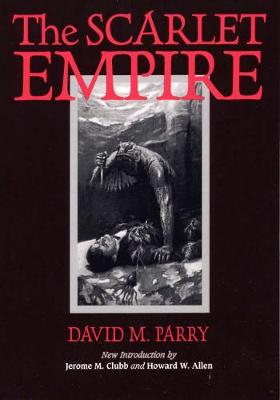Successful businessman David M. Parry wrote The Scarlet Empire in 1906, a time when dystopian and utopian novels were sufficiently popular in the United States and Great Britain that dozens were published in each country. Utopian fiction described perfect societies, usually socialistic and communitarian. Dystopian novels depicted degenerate societies, often occurring from the same approaches. In their introduction to this reprint, historians Jerome M. Clubb and Howard W. Allen argue that Parry's novel and others like it display the opinions, feelings, and reactions of different sects of society at the turn of the century. Rapid changes in the United States caused mixed emotions about the future of the country. Many novels like The Scarlet Empire were used to criticize current measures, investigate proposed reform, and show these proposals in either a negative or a positive light. One of the most popular utopian novels of the time, Edward Bellamy's Looking Backward, was written with the intention of promoting the reconciliation of equality and liberty. Bellamy's novel advocated a socialist government, a perfect utopian society with equality for men, women, and children, consolidated businesses, and strict government control. Clubb and Allen observe that these changes directly reflect reforms that were being proposed by the younger generation at the turn of the century. The Scarlet Empire is said to be a direct response to Looking Backward. It is intended as a supplemental text in American history, American studies, and popular culture courses. Eight original illustrations by Hermann C. Wall enhance the text.
- ISBN13 9780809323418
- Publish Date 30 June 2001
- Publish Status Active
- Out of Print 14 March 2021
- Publish Country US
- Imprint Southern Illinois University Press
- Format Paperback
- Pages 432
- Language English
